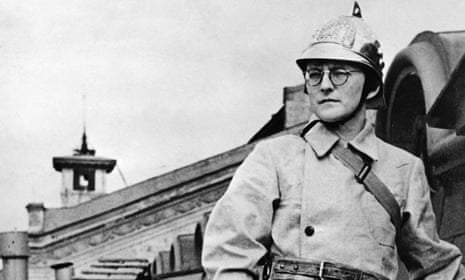My hero was a coward. Or rather, often considered himself a coward. Or rather, was placed in a position in which it was impossible not to be a coward. You or I would have been cowards in his position, and had we decided to be the opposite of a coward – a hero – we would have been extremely foolish. Those who stood up to power in those days were killed and members of their family, friends and associates were disgraced, sent to camps, or executed. So being a coward was the only sensible choice.
He was Dmitri Dmitrievich Shostakovich who, more than any other composer in the entire history of music, felt the daily, yearly, lifelong pressure of power. He wrote his First Symphony in 1926 at the age of 19; it was a worldwide success; three years later its dedicatee was arrested and shot. They executed the dedicatees of symphonies? Yes, and musicologists. And anyone who looked remotely suspicious to Stalin’s paranoid eye.
Shostakovich’s music has been with me for half a century; his “case” since the publication of Testimony, his contentious memoirs. Tikhon Khrennikov, the long-serving, power-worshipping head of the Composers’ Union, claimed – absurdly – that the composer was “a cheerful man who had nothing to be frightened of”. But as the Russian saying goes, the wolf cannot speak of the fear of the sheep. Shostakovich was often frightened (and narrowly escaped death in the 30s), wary and suspicious. Yet while he rightly feared Stalin’s power, he wasn’t afraid of Stalin personally (whereas Khrennikov famously shat his pants in the dictator’s presence).
Shostakovich stood his ground, paid Caesar his due (and Caesar was very greedy in those days), wrote his private as well as his public music, protected his family and hoped for better days. There are more forms of heroism than the obvious ones.

Comments (…)
Sign in or create your Guardian account to join the discussion